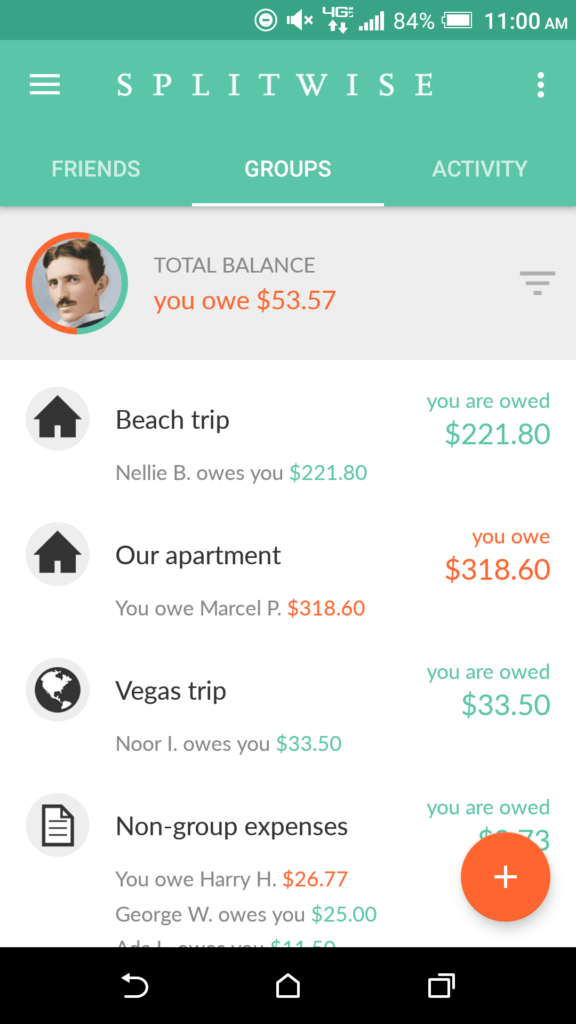Lending money to friends, or even family, is far from ideal—but that doesn’t mean it won’t happen. Here’s how to make your friend loans a little smoother.
Many personal finance experts and online guides warn, even recommend, against lending money to friends.

There are plenty of reasons not to—for instance:
- It’s hard to ask for that money back.
- Lending can strain your friendship and make things awkward.
- The dynamic of your relationship will change to that of a borrower and lender.
- You just might need that money yourself.
But that also doesn’t mean every friend asking to borrow money deserves a hard no. Even if that were the case, it’s much easier said than done to decline helping your friend.
Does that justify becoming a lender? No. However, that doesn’t mean it won’t happen—you’re human, after all, and compassion is a human instinct. Your friend just might have a legitimate reason for asking to borrow money and has no other option.
So in the event you do lend money to friends, here are four tips for making that loan a little less stressful.
Discuss a payback date.
Big or small, the amount that you loan should have a clear payback date attached. In fact, not having a set payback date might lead to the borrower forgetting or interpreting your loan as a gift.
Is your borrower ambivalent about setting a date? This might be a red flag to avoid proceeding. However, even if you’ve already loaned them money without discussing a payback date doesn’t mean you can’t broach the subject.

Here’s how to navigate the situation:
- Avoid being confrontational. Even if you’re annoyed, remain calm and level-headed when discussing your loan. Otherwise, your friend may feel attacked and get defensive.
- Don’t be passive aggressive. Dropping hints about wanting your money back can also make your friend feel uncomfortable.
- Be direct—but polite. For instance, that could be saying, “I was wondering when it would be possible for you to pay me back.”
- Provide reasoning. Whether it’s rent, student loans, or saving up for a big purchase, make it clear that you have a reason for wanting your money back. This can remind your friend that lending comes at your expense, and create a sense of urgency to repay you.
Come up with a repayment plan.
Besides establishing a payback date, you should make the terms of repayment clear. Do you expect your friend to pay you back all at once? Or do monthly installments suffice? And will you be expecting interest?
These details will reinforce the fact that this is a loan, not a gift—but more importantly, having a repayment plan will save you the uncertainty of wondering when exactly you’ll get paid back.
Beware if your friend makes promises that are hard to keep, though.
Because of your friendship, you’ll have a better gauge of your friend’s likelihood of following through exactly as they envision. If they sound a bit overly optimistic, give them a gentle reality check.
Get it in writing.
For larger sums of money, it’s not enough to verbally agree or shake hands on a loan.
Why?
Without any documentation, your loan could easily be passed off as a gift. And if you were to take the issue to court, you’d have very little support for your argument.
That’s why you need to put together a written agreement—that could be a formal loan agreement or a promissory note. Be sure to include:
- The loan amount
- Terms of repayment
- Interest rate
- The lender’s recourse in the event of nonpayment
Having this document will legitimize the money borrowed as a loan, rather than given as a gift, in both parties’ eyes. It can also prevent any potential arguments over the terms and conditions, and keep tax matters uncomplicated for the IRS.
Use money-tracking apps like Splitwise.

There are occasions when lending money might seem inevitable, or at least, more convenient—for example, eating out with big parties or sharing hotel costs on group trips.
For these instances, use apps like Splitwise to track who’s paying for what and how much is spent.
Since Splitwise is available for both mobile and desktop devices, it’s a handy tool for tracking borrowed money in real time. And when you see that a friend owes you money for last night’s dinner, you can even politely ask that they take care of your drinks the next night as repayment.
Apart from Splitwise, you can also leverage other technology like Venmo, Cash App, and PayPal to your advantage. Many banks now offer a similar feature, such as Chase’s QuickPay with Zelle. These apps make it easy to send and request money so that not having exact cash on hand is no longer an excuse for a friend not paying you back.
Get into the right mindset.
Lending money to a friend—or anyone, for that matter—requires being in the right state of mind. Are you okay with temporarily parting with that sum of money? How do you feel about the risk of not getting it all back?
If you feel like your hands are tied or you’re being manipulated to lend a friend money, abort immediately.
Doug Nordman, author of The Military Guide, shares about a loan to a relative that has become a tremendous learning experience along the way.
“In 2015, my spouse and I chose to lend $50K to a family member’s business for the best of reasons at the time. We’re financially independent. We wanted to preserve family harmony, and we could afford to lose the money. We’ve read all the stories about lending money to family, and we thought we were mentally ready for it to be a gift instead of a loan.”
Nordman and his partner did their homework, writing up a promissory note and agreement. Nonetheless, a series of unpleasant surprises led them to the realization that they weren’t in the right frame of mind for lending the money in the first place.
Feeling like you’ve been guilted or manipulated into lending money will set the stage for unease and possibly break your friendship. If you can’t sincerely commit to lending your friend money without it eating away at your nerves, be honest with them about it.
Conclusion
In many cases, lending money to friends, or even family, is far from ideal—but that doesn’t mean it won’t happen.
Of course, all is not lost if you do agree to lend someone money. Clear communication in setting repayment terms, as well as keeping a sense of patience, can help get your money back where it belongs and more importantly, preserve your friendship.





